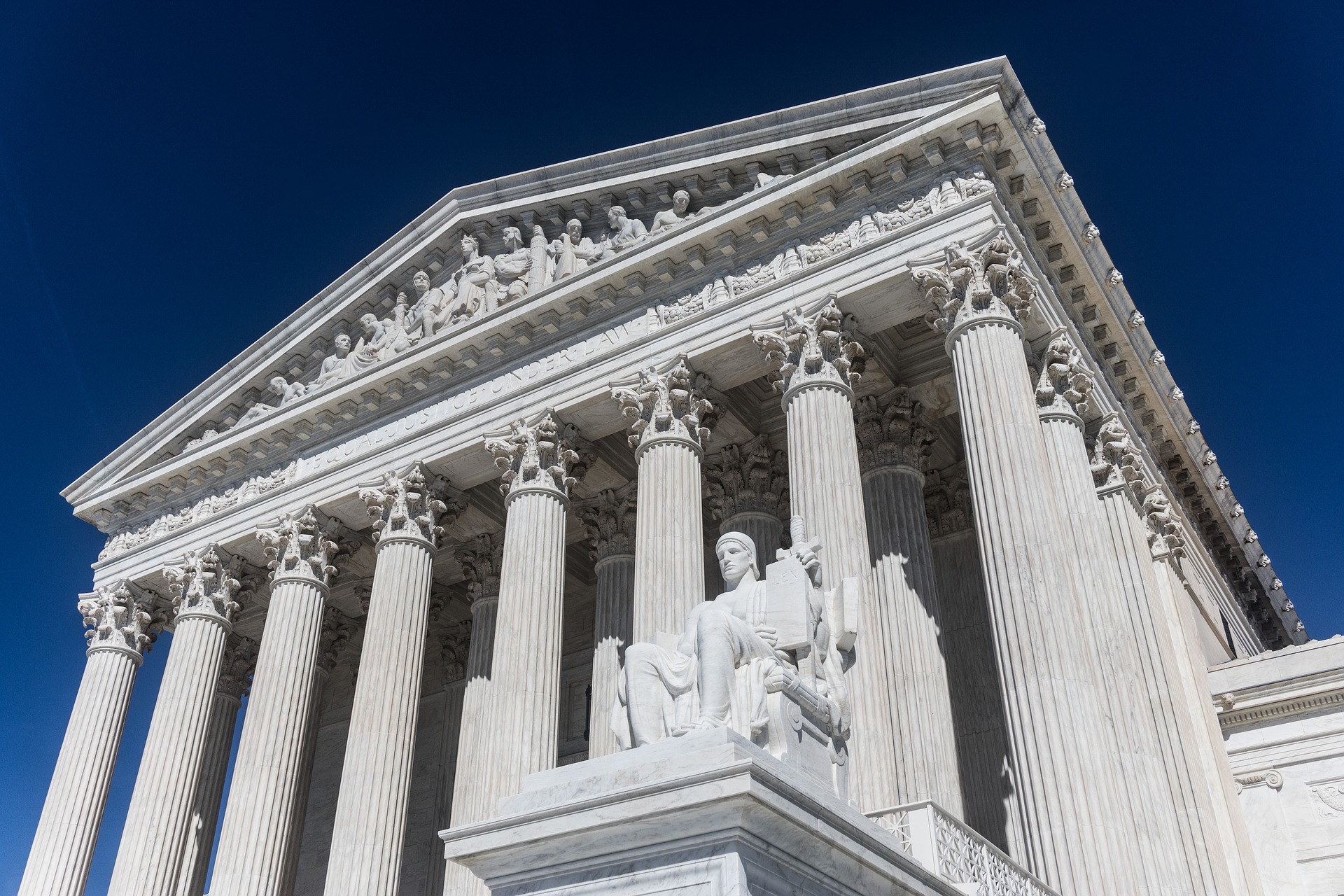
The legal question of if employees can receive unemployment compensation for refusing to comply with COVID-19 vaccination mandates has been muddled by court battles, bureaucracy, and shifting deadlines.
Surveys suggest that few people are actually leaving their jobs because of vaccine mandates: a recent poll by Kaiser found that only 5 percent of unvaccinated adults have done so. But the fate of vaccine mandates, and the consequences to employers who defy them, is in-flux and varies state by state.
Some background: On September 9, 2021, President Biden announced requirements that employees working for large private employers (those with 100 or more employees), the federal government, federal contractors, and healthcare entities be vaccinated against COVID-19. The mandate was slated to go into effect on January 10, 2022 but remains under debate in the Supreme Court as of that date.
On November 4, 2021, the Occupational Safety and Health Administration (OSHA) released an Emergency Temporary Standard (ETS) requiring all employers with at least 100 employees to ensure their workforce is fully vaccinated or subjected to weekly COVID-19 testing. While the mandate was scheduled to go into effect on January 4, 2022, it’s been suspended pending challenges in the Supreme Court.
Meanwhile, many states and jurisdictions are implementing their own vaccine requirements for certain workers. For example, Philadelphia city workers will either have to be vaccinated by January 14, provide a valid vaccine exemption (and submit to wearing two masks and receiving weekly testing) — or lose their jobs. In New York, California, and New Mexico, state health care workers are now required to receive a booster shot.
On the other end of the spectrum, a handful of state Governors who oppose the Biden administration’s mandate are enacting laws that ban vaccine mandates altogether — and extend unemployment benefits to workers who refuse to get the shots.
How does unemployment typically work?
Each state determines its own eligibility requirements for unemployment benefits. Typically, a person is eligible for unemployment benefits if they lose their job because of circumstances outside of their control or “through no fault of their own,” like if they are laid off.
Employees who are fired for misconduct, like failing a drug test or violating a workplace policy, are typically not allowed to collect unemployment. If an employer requires employees to get vaccinated, then refusing to get vaccinated could qualify as misconduct.
However, some states are extending unemployment benefits to workers who leave their jobs because of vaccine mandates.
Typically — workers who are fired for cause, like refusing to comply with a company policy, are ineligible for unemployment benefits. But several states — including Arkansas, Florida, Tennessee, Kansas, Iowa — have enacted laws allowing people who have lost their jobs over vaccine mandates to receive unemployment compensation. Other states including Wyoming, Wisconsin, and Missouri are considering similar measures.
In many cases, these laws protect workers who object to vaccination for personal or philosophical reasons, not just sincerely held religious beliefs or disability.
In October, Iowa Gov. Kim Reynolds signed a bill ensuring unemployment benefits for employees fired for refusing a vaccine, stating, “I believe the vaccine is the best defense against COVID-19 and we’ve provided Iowans with the information they need to determine what’s best for themselves and their families, but no Iowan should be forced to lose their job or livelihood over the COVID-19 vaccine.”
In Florida, the law states that “claimants discharged from educational institutions and governmental entities will not be disqualified from benefits if the discharge is for refusing to comply with a COVID-19 vaccination mandate.”
Back in November 2021, Florida Gov. Ron DeSantis signed a bill establishing that refusing to comply with vaccination mandates isn’t considered “misconduct.”
The law established that private and public-sector employers are forbidden from instating COVID-19 vaccine mandates, and allows employers to choose from numerous exemptions, including:
- Health or religious concerns
- Pregnancy or anticipated future pregnancy
- Past recovery from COVID-19
Notably, the law does not require the employee to describe what the religious belief is, or otherwise provide any supporting proof of their exemption.
Employees who refuse vaccination can instead choose to take periodic COVID-19 tests or wear PPE as an alternative — but employers must cover the costs of testing and PPE exemptions for employees.
Importantly, employees in Florida can only claim unemployment if their employer denies them the above exemptions or an alternative safety measure like wearing PPE while in the office.
Florida employers who violate the law will be fined, with small businesses (99 employees or less) facing $10,000 per employee violation. Medium and big businesses will face $50,000 per employee violation.
In some states, the issue is less clear. For example, Washington State Gov. Jay Inslee warned state employees and health care workers in August that they would not receive unemployment benefits if they quit or were fired from their jobs for refusing to get vaccinated. However, thousands of workers have since been fired or quit over vaccine mandates without being denied benefits.
Click here for more detailed, up-to-date information on state and federal employee vaccine mandates.
ABOUT THE AUTHOR
Lia Tabackman is a freelance journalist, copywriter, and social media strategist based in Richmond, Virginia. Her writing has appeared in the Washington Post, CBS 6 News, the Los Angeles Times, and Arlington Magazine, among others. She writes weekly nonprofit-specific content for 501c.com.
Image by Mark Thomas from Pixabay.




